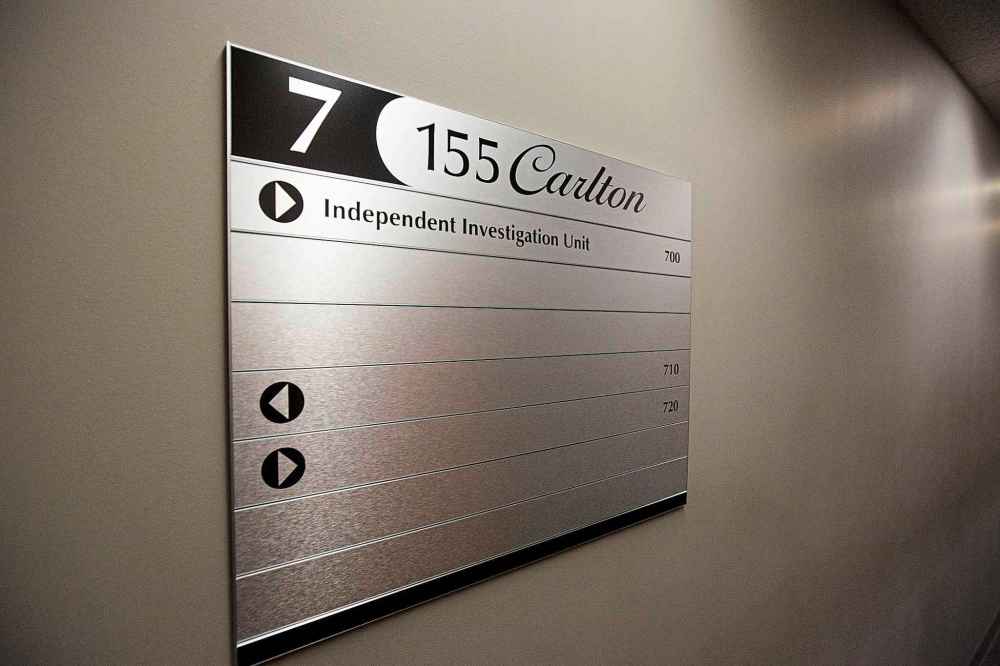WPS is well served by independent scrutiny
Read this article for free:
or
Already have an account? Log in here »
To continue reading, please subscribe:
Monthly Digital Subscription
$0 for the first 4 weeks*
- Enjoy unlimited reading on winnipegfreepress.com
- Read the E-Edition, our digital replica newspaper
- Access News Break, our award-winning app
- Play interactive puzzles
*No charge for 4 weeks then price increases to the regular rate of $19.00 plus GST every four weeks. Offer available to new and qualified returning subscribers only. Cancel any time.
Monthly Digital Subscription
$4.75/week*
- Enjoy unlimited reading on winnipegfreepress.com
- Read the E-Edition, our digital replica newspaper
- Access News Break, our award-winning app
- Play interactive puzzles
*Billed as $19 plus GST every four weeks. Cancel any time.
To continue reading, please subscribe:
Add Free Press access to your Brandon Sun subscription for only an additional
$1 for the first 4 weeks*
*Your next subscription payment will increase by $1.00 and you will be charged $16.99 plus GST for four weeks. After four weeks, your payment will increase to $23.99 plus GST every four weeks.
Read unlimited articles for free today:
or
Already have an account? Log in here »
Hey there, time traveller!
This article was published 14/02/2020 (2125 days ago), so information in it may no longer be current.
While Justice Minister Cliff Cullen continues his long and winding review of the Police Services Act, the relationship between the Winnipeg Police Service and the Independent Investigation Unit of Manitoba continues to burn.
Letter of the law: WPS, IIU clash in court

Posted:
A precedent-setting legal dispute between the Winnipeg Police Service and the Independent Investigation Unit of Manitoba has taken an important step forward.
For several years now, it’s been all-out war between the province’s largest police force and the provincial body that investigates all serious on- or off-duty incidents involving police officers. In general, the former has generally refused to co-operate with the work performed by the latter.
In the fall of 2018, in the wake of an investigative series by the Free Press showing how the WPS was obstructing the IIU’s work, the government of Premier Brian Pallister pledged a comprehensive review of the Police Services Act, the law that governs both the police service and the IIU. Not much was done on that file until May 2019, when Cullen announced his department was searching for a consultant to conduct a review.
According to a departmental spokeswoman, that consultant, the non-profit Community Safety Knowledge Alliance, is expected to deliver a report in mid-2020. There was no indication of when, or if, legislative amendments would be forthcoming. The Tory government’s pledge, after all, was to conduct a review and not necessarily to change the law as it exists right now.
It is not unusual for a provincial government to take a deliberate, methodical approach to reviewing a major piece of legislation. Given that the PSA defines the legal roles and responsibilities of the Manitoba Police Commission, the IIU and all municipal and First Nations police boards and services, this is no simple task.
Still, Cullen seems to be taking an all-too-leisurely approach to an issue that is very much on his front burner, blazing away like an untended tire fire.

The most recent example of this dysfunctional relationship unfolded last week in the Court of Queen’s Bench, where the IIU and WPS continued to spar over access to civilian police cadets who witnessed events that led to the in-custody death of 34-year-old Matthew Richard Fosseneuve.
In July 2018, police and cadets responded to a report of a man behaving aggressively. Police would eventually use a Taser to subdue Fosseneuve. After becoming unresponsive, he was taken to hospital, where he was pronounced dead.
The IIU sought access to all police personnel, including the cadets, who witnessed the events leading to Fosseneuve’s death. The WPS refused to provide much of what the IIU requested. Last April, this prompted the IIU to file a lawsuit against the police service that is only now being heard.

Although this legal action involves Fosseneuve’s death, the case will largely be determined by the court’s interpretation of the terms of the Police Services Act, the very legislation Cullen has pledged to review.
In short, the WPS believes the IIU has no legal right to interview the cadets or look at their notes, given that the police act only requires full-fledged peace officers who witness an incident to participate in an independent investigation. Cadets are civilian peace officers in training.
The IIU has countered by arguing that their requests, which are meant to fairly and completely assess the actions of police in the death of a suspect, are very much in keeping with the spirit of the law, if not the letter of it.
If the interests of justice are paramount, there is little doubt that the powers of the IIU, as outlined in legislation, need to be clarified and expanded. Timely, independent investigations of incidents involving the police are not just good for the general public, they are ultimately good for police. Flawed or profoundly delayed investigations severely undermine confidence in police.
That being said, the PSA review is a political hand grenade for the Pallister government.
The more WPS Chief Danny Smyth and the WPS refuse to co-operate with the IIU, the more reasonable people will be entitled to ask what it is, exactly, that they are hiding.
Many voters love politicians who are strong on law-and-order issues. However, legislation that imposes greater transparency and accountability on the police can easily be misrepresented as a cynical bid to hamper the ability of law enforcement agencies to do their jobs. And this government certainly does not want to send signals to its core supporters that it is trying to hamper police, particularly following a year with growing meth-related crime and a record homicide count.
For those within the law-enforcement community itself, a legislative review and the potential that IIU powers will be enhanced could be perceived an attack on front-line officers. WPS Chief Danny Smyth has said publicly that in refusing to provide documentation and personnel for interviews, he is only trying to ensure that the process is fair for his officers.
The issue of fairness is certainly valid in this dispute. Police are currently carrying an unfathomable burden. As meth and murders wreak havoc, city council is attempting to curb the astronomical growth in the annual police budget. It’s a classic rock-and-a-hard-place equation, where police are being asked to do more with potentially less taxpayer support. In that scenario, it’s not hard to cultivate frustration and resentment among front-line officers.
However, Smyth needs to take the long view on the issue of fairness.

It is certainly unfair for anyone to look at a case such as Fosseneuve’s and conclude — absent of a complete set of facts — that police acted rashly or used excessive force. In fact, this could very well be a case of a tragic result coming from an appropriate use of force.
But here’s the problem facing Smyth: that latter conclusion can only be reached by a thorough and independent review of the incident. The WPS history is littered with stories about botched internal investigations that scuttled criminal cases against police officers. The more Smyth and the WPS refuse to co-operate with the IIU, the more reasonable people will be entitled to ask what it is, exactly, that they are hiding.
It also should be said that despite ongoing hostilities, there is no specific evidence suggesting the IIU, led by Civilian Director Zane Tessler, has been unfair or rash in its assessment of other incidents. More often than not, Tessler has declined to lay criminal charges against WPS members involved in serious incidents, many involving the death or injury of a suspect.
In some instances where Tessler has recommended criminal charges, Smyth has generally concurred. That was the case earlier this year when the IIU recommended criminal charges against a WPS officer who illegally manipulated a computer system to nullify a photo-radar speeding ticket.
Following the decision to charge the officer involved, Smyth said “the integrity of the conduct of police officers and the integrity of police systems must be paramount if the people we serve are to trust the police.”
At some point, Smyth should realize the work of the IIU helps ensure the integrity of both police officers and policing systems. And that obstructing the IIU with arcane interpretations of provincial law does not.
dan.lett@freepress.mb.ca

Born and raised in and around Toronto, Dan Lett came to Winnipeg in 1986, less than a year out of journalism school with a lifelong dream to be a newspaper reporter.
Our newsroom depends on a growing audience of readers to power our journalism. If you are not a paid reader, please consider becoming a subscriber.
Our newsroom depends on its audience of readers to power our journalism. Thank you for your support.











